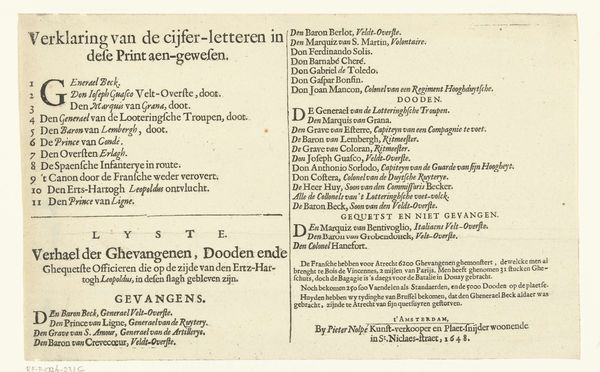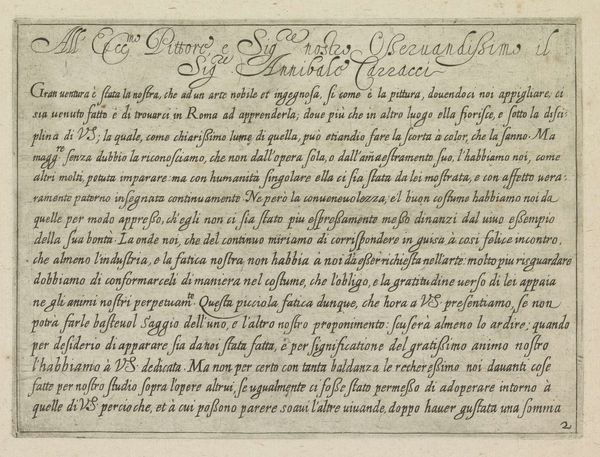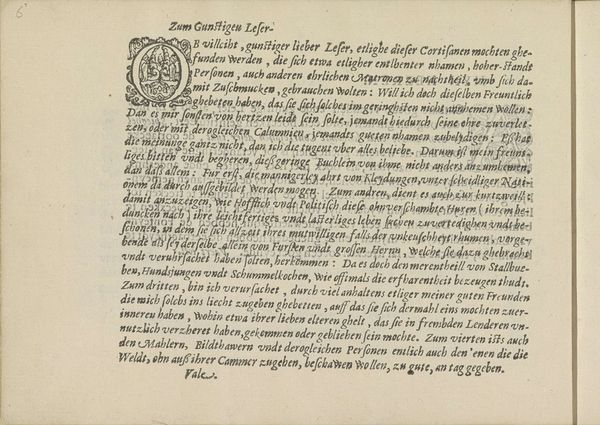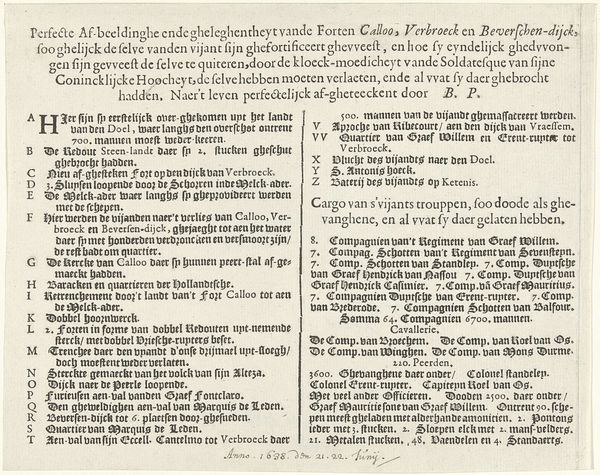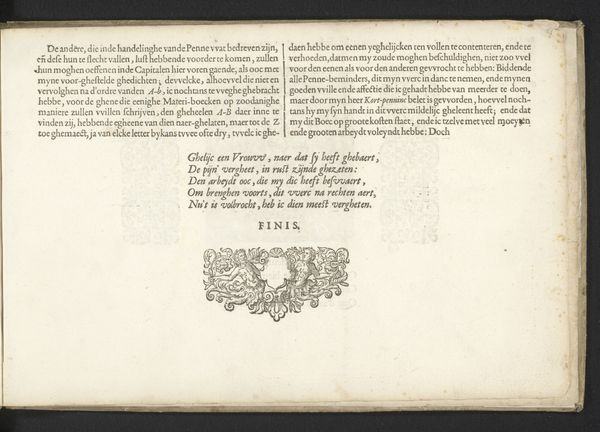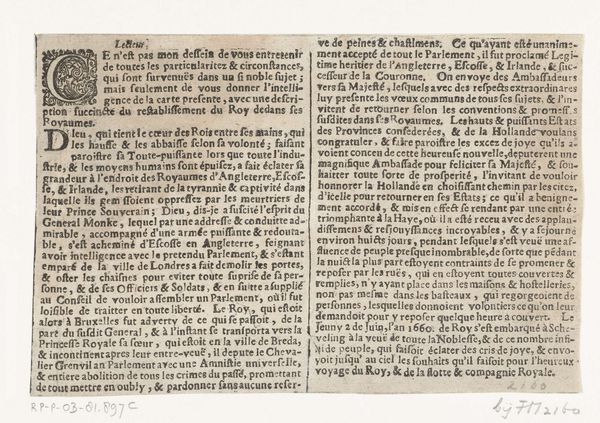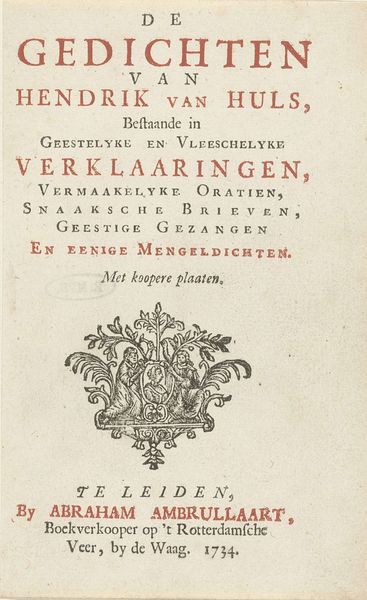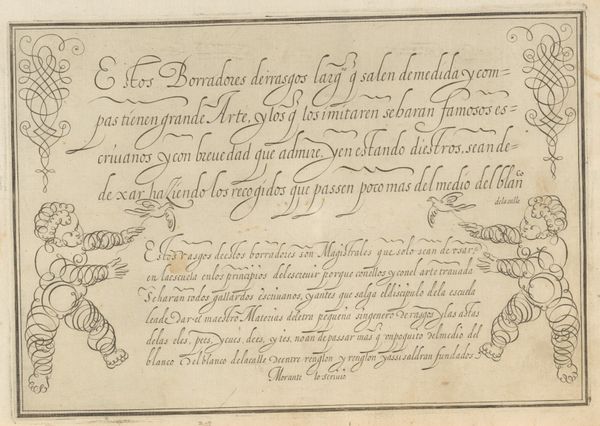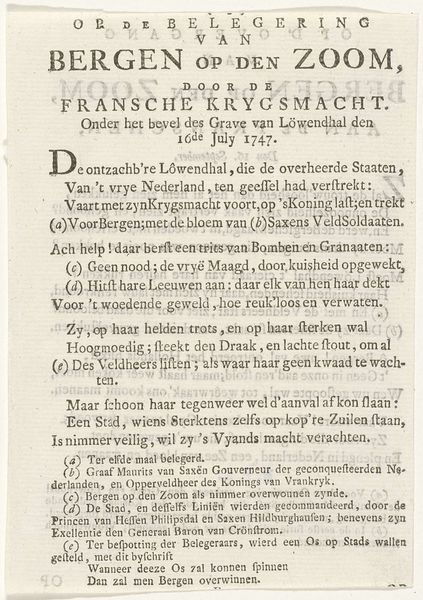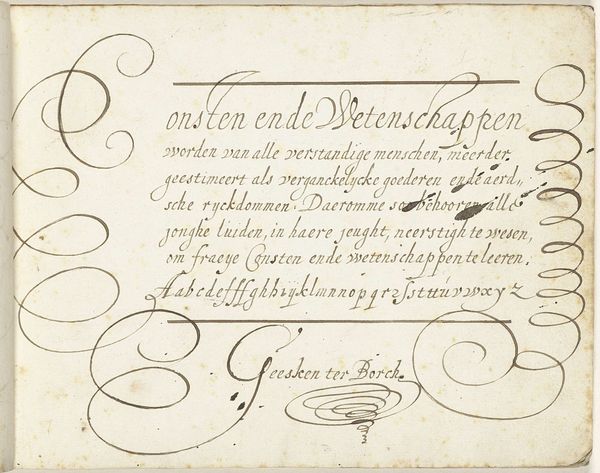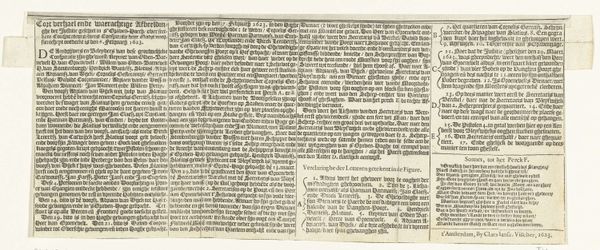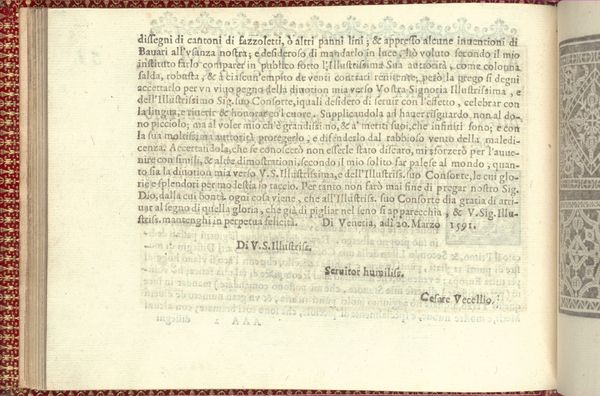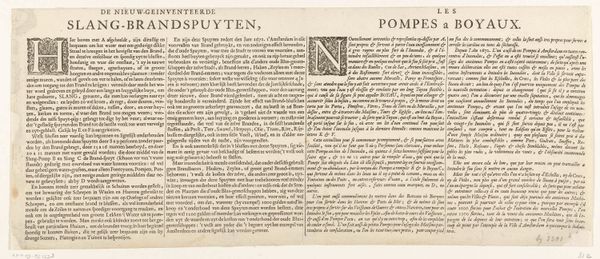
Tekstblad bij de prent met de allegorie op de oprichting van de Oprechte Vaderlandsche Sociëteit te Rotterdam, 1787 1787
0:00
0:00
petrushofstede
Rijksmuseum
graphic-art, print, textile, typography, poster, engraving
#
graphic-art
#
script typography
#
hand-lettering
# print
#
hand drawn type
#
hand lettering
#
textile
#
typography
#
hand-drawn typeface
#
fading type
#
stylized text
#
thick font
#
handwritten font
#
poster
#
engraving
#
small lettering
Dimensions: height 195 mm, width 286 mm
Copyright: Rijks Museum: Open Domain
This broadside print, created in 1787 by Petrus Hofstede, commemorates the founding of the Oprechte Vaderlandsche Sociëteit in Rotterdam. The central visual and textual elements are rife with symbolism reflecting the political and cultural tensions of the time. Allegorical figures such as Freedom, represented as a strong pillar, stand alongside references to classical heroes like Hercules, poised to crush a dragon symbolizing oppression. These motifs echo throughout history. Hercules, for example, appears in ancient Greek art, embodying strength and virtue. Similarly, the image of a pillar supporting Freedom harkens back to Roman representations of steadfastness and resilience. However, here, these symbols take on new layers of meaning within the context of Dutch patriotism and political reform. Such recurring symbols highlight how collective memory shapes our understanding. The dragon Hercules confronts isn't just a monster; it embodies anxieties about tyranny. This fear, deeply embedded in the cultural psyche, resurfaces across generations, adapting to new threats and challenges. It’s a powerful expression engaging viewers on a subconscious level. Ultimately, this print serves as a potent reminder of how symbols evolve, retaining echoes of the past while addressing contemporary concerns. The image of Hercules, the pillar, and the dragon exist in a perpetual cycle, continuously reappearing in new forms.
Comments
No comments
Be the first to comment and join the conversation on the ultimate creative platform.
